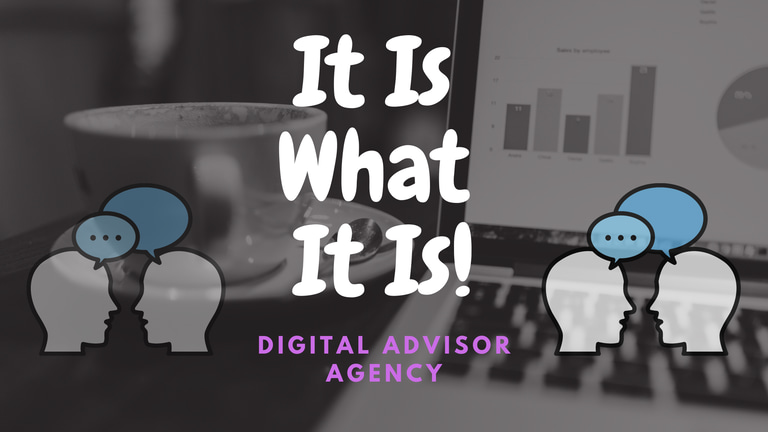How to Improve Your Strengths and Weaknesses.
• 5 Ways CPAs Can Be Better
10/25/20234 min read


Can you Do Better?
What people are saying about CPAs: 5 pros and cons
Write your text here...CPAs, or Certified Public Accountants, are highly skilled financial professionals who are in high demand. They offer a wide range of services, including tax preparation, auditing, accounting, and financial planning.
Pros of CPAs
Expertise: CPAs are required to pass a rigorous exam and meet strict education and experience requirements before they can become licensed. This means that they have a deep understanding of accounting and financial principles.
Credibility: The CPA designation is a symbol of credibility and professionalism. When you work with a CPA, you can be confident that you are getting advice from someone who is qualified and experienced.
Versatility: CPAs can provide a wide range of services, from basic tax preparation to complex financial planning. This makes them a valuable asset to businesses and individuals alike.
Job opportunities: CPAs are in high demand in a variety of industries. This means that there are many job opportunities available to CPAs, and they can often command a higher salary than non-CPAs.
Advancement opportunities: There are many opportunities for advancement for CPAs. CPAs can move into management positions, or they can start their own accounting firm.
Cons of CPAs
Cost: CPAs can be expensive to hire, especially for complex tasks such as auditing or financial planning. However, it is important to remember that you are paying for expertise and experience.
Availability: CPAs are in high demand, so it can be difficult to find a CPA who is available to take on new clients.
Complexity: Accounting and financial matters can be complex, even for CPAs. This means that it is important to communicate clearly with your CPA and make sure that you understand their advice.
Liability: CPAs are liable for any errors or omissions in their work. This means that if a CPA makes a mistake, it could cost you money.
Time commitment: CPAs can be very busy, especially during tax season. This means that it may be difficult to get ahold of them or get them to respond to your requests promptly.
Overall, the pros of working with a CPA outweigh the cons. CPAs can provide valuable expertise and guidance on a wide range of financial matters. However, it is important to be aware of the potential costs and limitations of working with a CPA before you make a decision.
Here are some things that people are saying about CPAs:
"My CPA has saved me thousands of dollars on my taxes."
"I feel so much more confident about my financial situation since I started working with a CPA."
"My CPA is always available to answer my questions, no matter how small."
"I'm so glad I hired a CPA to help me start my own business."
"My CPA is a trusted advisor who helps me make sound financial decisions."
If you are considering working with a CPA, be sure to do your research and choose a CPA who is qualified and experienced in the areas that you need assistance with. You should also be prepared to pay for the CPA's expertise and experience.
CPAs can improve their pros and cons in several ways.
Pros
Expertise: CPAs can continue to learn and develop their expertise by attending continuing education courses, reading industry publications, and networking with other CPAs.
Credibility: CPAs can maintain and enhance their credibility by staying up-to-date on the latest accounting and financial standards and regulations. They can also get involved in professional organizations and volunteer their time to community causes.
Versatility: CPAs can expand their range of services by taking courses or completing certifications in specialized areas such as tax planning, forensic accounting, or financial planning.
Job opportunities: CPAs can make themselves more marketable by developing strong technical skills and soft skills such as communication, problem-solving, and teamwork.
Advancement opportunities: CPAs can prepare for advancement opportunities by taking on leadership roles within their current organization or by pursuing further education such as an MBA degree.
Cons
Cost: CPAs can reduce their costs by streamlining their processes and using technology to their advantage. They can also offer a variety of pricing options to meet the needs of their clients.
Availability: CPAs can improve their availability by delegating tasks to staff members and by using technology to automate tasks.
Complexity: CPAs can make their services more accessible to clients by explaining complex financial matters in a clear and concise way. They can also offer educational resources to help clients learn more about accounting and finance.
Liability: CPAs can reduce their liability by maintaining professional liability insurance and by having their work reviewed by other CPAs.
Time commitment: CPAs can better manage their time by setting realistic goals and priorities. They can also delegate tasks to staff members and by using technology to automate tasks.
Here are some specific things that CPAs can do to improve their pros and cons:
To improve their expertise, CPAs can:
Attend continuing education courses offered by their state CPA society or other professional organizations.
Read industry publications such as The CPA Journal and Accounting Today.
Network with other CPAs through professional organizations and online forums.
To maintain and enhance their credibility, CPAs can:
Stay up-to-date on the latest accounting and financial standards and regulations.
Get involved in professional organizations such as the American Institute of Certified Public Accountants (AICPA) and the National Association of State Boards of Accountancy (NASBA).
Volunteer their time to community causes such as the Volunteer Income Tax Assistance (VITA) program.
To expand their range of services, CPAs can:
Take courses or complete certifications in specialized areas such as tax planning, forensic accounting, or financial planning.
Offer consulting services in addition to traditional accounting and auditing services.
To make themselves more marketable, CPAs can:
Develop strong technical skills in accounting and financial reporting.
Develop soft skills such as communication, problem-solving, and teamwork.
Network with other professionals in the business community.
To prepare for advancement opportunities, CPAs can:
Take on leadership roles within their current organization.
Pursued further education such as an MBA degree.
To reduce their costs, CPAs can:
Streamline their processes by using technology and outsourcing tasks to third-party providers.
Offer a variety of pricing options to meet the needs of their clients.
To improve their availability, CPAs can:
Delegate tasks to staff members.
Use technology to automate tasks such as scheduling appointments and sending reminders.
To make their services more accessible to clients, CPAs can:
Explain complex financial matters in a clear and concise way.
Offer educational resources such as blog posts, webinars, and e-books.
To reduce their liability, CPAs can:
Maintain professional liability insurance.
Have their work reviewed by other CPAs.
To better manage their time, CPAs can:
Set realistic goals and priorities.
Delegate tasks to staff members.
Use technology to automate tasks such as data entry and report generation.
By taking these steps, CPAs can improve their pros and cons and become more successful in their careers.


